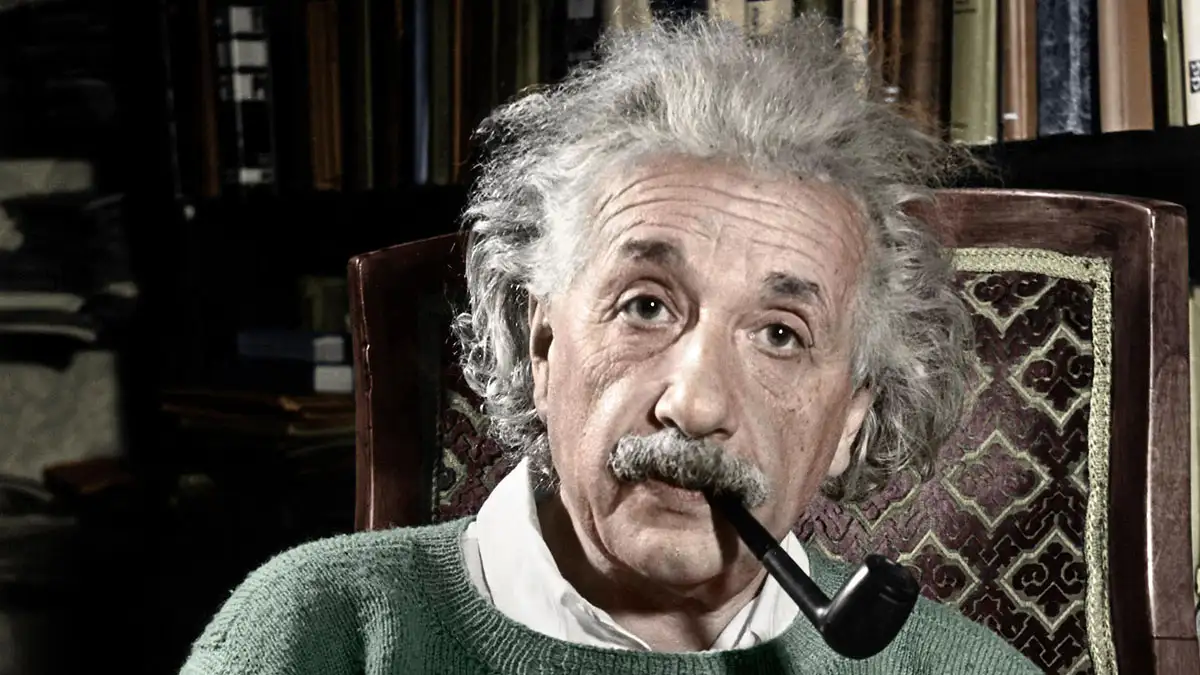Albert Einstein is often synonymous with scientific genius, a name instantly recognized for revolutionizing our understanding of the universe. But how did this man, born in the late 19th century, come to redefine the fabric of physics? This blog post dives into Einstein’s life and legacy, offering students a voyage through his groundbreaking theories, personal struggles, and the profound impact he had on both the scientific community and society at large. By the end, you’ll grasp not only why Einstein is hailed as a pivotal figure in science but also how his ideas continue to influence our world today.
Overview of Einstein’s Significance in the Scientific World
Albert Einstein stands as a towering figure in modern physics, credited with transforming our approach to understanding space, time, and energy. His work laid the foundation for futuristic technologies that were once beyond imagination, like GPS navigation and laser devices. Einstein’s theories challenged conventional wisdom, replacing Newtonian mechanics with a new framework that reshaped the scientific landscape. Through his relentless pursuit of knowledge, Einstein provided answers to questions that had stumped scientists for centuries, making him an enduring symbol of curiosity and intellect.
Albert Einstein – The Mind Behind Modern Physics
Age
| Detail | Information |
|---|---|
| Date of Birth | March 14, 1879 |
| Date of Death | April 18, 1955 |
| Current Age | Would be 145 years (as of 2024) |
Full Bio
| Section | Information |
|---|---|
| Early Life | Albert Einstein was born in Ulm, in the Kingdom of Württemberg in the German Empire. He was raised in a secular Jewish family. |
| Education | He studied at the Polytechnic Institute in Zurich, graduating in 1900 with a degree in physics. |
| Career Growth | Worked as a patent examiner in Bern; published several groundbreaking papers in 1905, including the theory of special relativity. |
| Key Achievements | Best known for the theory of relativity, particularly the equation E=mc², and contributions to quantum mechanics. |
| Later Life | Emigrated to the U.S. in 1933, becoming a professor at Princeton University, and continued his research until his death. |
Family
| Relation | Information |
|---|---|
| Father | Hermann Einstein, a businessman. |
| Mother | Pauline Koch, a homemaker. |
| Siblings | One sister, Maria (Maja) Einstein. |
| Family Background | Middle-class Jewish family with an interest in education. |
Spouse
| Detail | Information |
|---|---|
| First Wife | Mileva Marić (married 1903–1919); had three children together. |
| Second Wife | Elsa Löwenthal (married 1919–1935); cousin of Einstein. |
Children
| Detail | Information |
|---|---|
| Names | Lieserl, Hans Albert, Eduard |
| Involvement | Hans Albert became a philosopher; Eduard suffered from mental illness. |
Wealth
| Detail | Information |
|---|---|
| Net Worth | Estimated at $5 million (at the time of his death). |
| Income Sources | Academia, book royalties, and lectures. |
Political and Social Views
| Section | Information |
|---|---|
| Activism | Advocated for civil rights, pacifism, and Zionism; opposed nationalism and militarism. |
| Legacy | Left a profound impact on physics, philosophy, and humanitarian issues. |
Place of Birth
| Detail | Information |
|---|---|
| City | Ulm |
| Country | Germany |
A Glimpse into Einstein’s Personal Life and Struggles
While celebrated for his intellect, Einstein’s life was far from a smooth trajectory of success. Behind the public persona lay a man who grappled with personal difficulties, from family conflicts to political exile. Einstein’s personal letters reveal a man torn between his scientific endeavors and familial responsibilities, offering students insight into the complexities of balancing professional ambition with personal commitments. These struggles humanize Einstein, showing that even the most brilliant minds face challenges that require resilience and perseverance.
Early Life and Education
Einstein’s Childhood in Germany
Albert Einstein was born in Ulm, Germany, in 1879, to a modest Jewish family. His early years were unremarkable, marked by a slow development in speech that left his parents concerned. Yet, this apparent delay belied a curious mind that would later blossom into one of the greatest thinkers of all time. Raised in Munich, Einstein was exposed to a world of engineering and mathematics through his father and uncle’s electrical business, setting the stage for his burgeoning interest in scientific principles.
Education and Early Interest in Science
Einstein’s formal education began at the Luitpold Gymnasium in Munich, where he found the rigid schooling system stifling. Despite these challenges, his fascination with science was evident from a young age. At 15, Einstein’s family moved to Italy, where he continued to study independently, exploring concepts beyond his school curriculum. His passion led him to the Swiss Federal Polytechnic in Zurich, where he honed his skills in physics and mathematics, setting the groundwork for his later revolutionary contributions.
Breakthrough Years
The Miracle Year of 1905 and the Publications that Changed Physics
1905 is often referred to as Einstein’s “miracle year” or “annus mirabilis,” a period during which he published four seminal papers that transformed physics forever. These papers addressed critical issues, including the photoelectric effect, Brownian motion, special relativity, and the equivalence of mass and energy. Each publication challenged existing scientific paradigms, introducing new ways to understand the natural world and establishing Einstein as a formidable intellect in the scientific community.
Development of the Theory of Special Relativity and E=mc²
Among Einstein’s groundbreaking ideas was the theory of special relativity, which redefined our understanding of space and time. It posited that the laws of physics are the same for all non-accelerating observers and that the speed of light is constant regardless of the observer’s frame of reference. From this theory emerged the famous equation E=mc², which encapsulates the principle that energy and mass are interchangeable. This revelation not only advanced theoretical physics but also had practical implications, paving the way for innovations such as nuclear power.
Later Developments and Contributions
General Relativity and Its Implications for Modern Physics
Building on his previous work, Einstein introduced the theory of general relativity in 1915, offering a new understanding of gravitation. Unlike Newton’s conception of gravity as a force between masses, Einstein proposed that gravity is the curvature of space-time caused by mass. This theory was experimentally confirmed during a solar eclipse in 1919, catapulting Einstein to global fame. General relativity has since become a crucial tool in astrophysics, allowing scientists to explore phenomena such as black holes and the expansion of the universe.
Contributions to Quantum Mechanics and the Photoelectric Effect
While Einstein is best known for relativity, his work on quantum mechanics significantly influenced the field. His explanation of the photoelectric effect, for which he received the Nobel Prize in 1921, helped establish the quantum theory of light. Einstein proposed that light consists of discrete packets of energy called quanta or photons, which led to the development of quantum mechanics. Despite his contributions, Einstein remained skeptical of the theory’s probabilistic nature, famously asserting, “God does not play dice.”
Personal Life
Family Background, Marriages, and Children
Einstein’s personal life was marked by complexity and challenge. He was married twice, first to Mileva Marić, with whom he had two sons, Hans Albert and Eduard, and a daughter, Lieserl, who was likely given up for adoption. His marriage to Marić eventually ended in divorce, and he later married his cousin, Elsa Löwenthal. These relationships were often strained by Einstein’s dedication to his work and frequent relocations, reflecting the difficulty of balancing personal and professional life.
Challenges Faced in His Personal Life
Beyond familial commitments, Einstein faced numerous obstacles, including political persecution. With the rise of Nazism, his Jewish heritage made him a target, forcing him to flee Germany for the United States in 1933. Settling at Princeton University, Einstein continued his research but was isolated from the socio-political turmoil in Europe. Despite these obstacles, he remained steadfast in his commitment to scientific inquiry and humanitarian causes.
Political Views and Activism
Einstein’s Stance on Civil Rights, Pacifism, and Zionism
Einstein was not only a scientific visionary but also a vocal advocate for social justice. He championed civil rights, speaking out against racism and segregation in the United States. His commitment to pacifism was unwavering, advocating for disarmament and denouncing militaristic ideologies. Although initially ambivalent about Zionism, he later supported the establishment of a Jewish homeland in Palestine, emphasizing coexistence between Jews and Arabs.
Opposition to Nationalism and Militarism
Einstein’s experiences in Nazi Germany solidified his opposition to nationalism and militarism. He believed that blind allegiance to nation-states led to conflict and advocated for global cooperation and dialogue. His anti-war stance was not without controversy, particularly during World War II, when he urged President Roosevelt to develop atomic weapons in response to the Nazi threat—a decision he later regretted, championing nuclear disarmament instead.
Legacy and Impact
Einstein’s Influence on Science, Philosophy, and Society
Einstein’s legacy extends far beyond physics, influencing diverse fields such as philosophy and culture. His ideas on relativity reshaped philosophical debates about time, space, and reality, while his musings on determinism and free will continue to inspire thinkers. Culturally, Einstein’s image as a benign, eccentric genius has permeated popular culture, symbolizing creativity, intelligence, and the relentless pursuit of truth.
How His Work Paved the Way for Future Scientific Discoveries
Einstein’s groundbreaking theories laid the foundation for numerous scientific breakthroughs. His work on relativity and quantum mechanics continues to guide physicists in exploring the cosmos, leading to advancements in technologies such as GPS, lasers, and medical imaging. The Large Hadron Collider, gravitational wave observatories, and space exploration owe much to the theoretical groundwork Einstein established, illustrating his enduring influence on modern science.
Conclusion
Albert Einstein’s contributions to science and society remain unparalleled, a testament to his intellectual prowess and humanitarian spirit. From reshaping our understanding of the universe to advocating for peace and justice, Einstein’s legacy endures as a beacon of innovation and compassion. For students today, his life serves as a reminder that curiosity, resilience, and a commitment to truth can lead to remarkable discoveries. To explore further, consider engaging with resources like biographies, documentaries, and scientific papers that illuminate the multifaceted genius of Albert Einstein.
FAQs about Albert Einstein
- Who was Albert Einstein?
Albert Einstein was a theoretical physicist known for developing the theory of relativity and the famous equation E=mc². - What is the theory of relativity?
The theory of relativity consists of two theories: special relativity and general relativity, revolutionizing our understanding of space, time, and gravity. - What were Einstein’s contributions to quantum mechanics?
Einstein contributed to the understanding of the photoelectric effect, leading to the development of quantum theory, for which he won the Nobel Prize in Physics in 1921. - What is Einstein’s legacy?
Einstein is considered one of the greatest physicists of all time, influencing various fields of science and advocating for social justice and humanitarian causes. - Where did Albert Einstein live during his later years?
He lived in the United States, primarily in Princeton, New Jersey, where he worked at Princeton University until his death. - What was Einstein’s view on religion?
Einstein had complex views on religion; he described himself as agnostic and expressed admiration for the moral teachings of religion, but he rejected traditional religious beliefs.\
Read More :: Jeremy Corbyn: The Advocate for Social Justice and Change in British Politics









